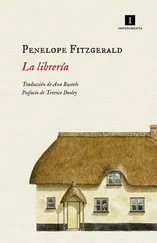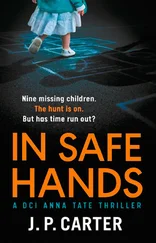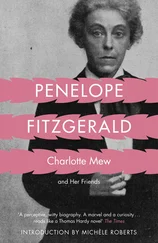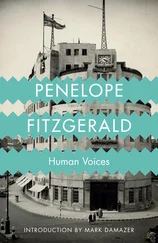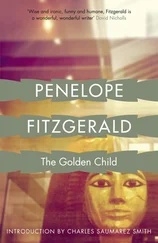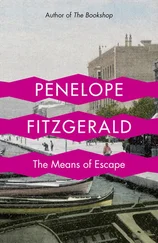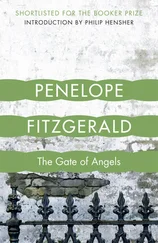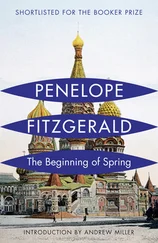The biography, though, didn’t sell, and her next project didn’t sound any more commercial to the rather middlebrow publishing house of Michael Joseph (as Raleigh Trevelyan recently recalled, they preferred to publish books about horses and dogs). It was politely turned down. But there were good reasons to believe Macmillan might be interested in The Knox Brothers, for Harold Macmillan had been much influenced by the Catholic chaplain, Ronald Knox, as an undergraduate at Oxford, and they always remained friends. He appears in the book as ‘C’. Harold Macmillan’s letter of congratulations to Penelope is most touching: ‘you have brought out marvellously well the characteristics of these remarkable men…you have made it all so living and, to me, in my old age deeply moving’.
The first of the revealing sets of letters to editors that form the core of this book is to Richard Garnett at Macmillan: ‘All writers are intimidated by all publishers,’ she remarked to him, and he sounds more intimidating than most, though Penelope politely stood up to him, in part by quoting his brusqueries back to him: ‘It worried me terribly when you told me I was only an amateur writer, and I asked myself how many books do you have to write and how many semi-colons do you have to discard before you lose amateur status.’ And again: ‘I recall that my heart sank when you said "I have the right to expect accuracy".’ Garnett was a scrupulous editor, but Penelope won most of the skirmishes over accuracy, even over how best to explain the complex workings of the Enigma decoding machine.
To describe the Knoxes’ many achievements required an overview of several quite distinct disciplines and milieux. Sons of Bishop Knox of Manchester, two of her uncles became priests of quite different stripe. Ronnie, much to his father’s distress, was the most public convert to Catholicism since Newman. A Christian apologist famous between the wars for his witness, he was much in demand in the newspapers and on the radio. He also wrote much-praised learned theological works, was renowned as a wit – his book Let Dons Delight being a particular favourite with the public – translated the Bible, and, while chaplain at Oxford, penned a best-selling series of detective novels. Wilfred, the least known of the brothers, was an Anglican chaplain at Cambridge, wrote profound devotional works, and inspired a generation of clergymen. Penelope’s father Eddie (or ‘Evoe’, his chosen sobriquet), the longest lived of the family, dying in 1970 at the age of ninety, made humour his speciality, writing graceful light verse and prose for Punch. Collected every Christmas in volume form, it was very popular. He edited the paper between the wars and brought it to its highest point of success and circulation. Dillwyn began as a brilliant classicist, and editor of the Herodas papyri. His subsequent career, though shrouded in mystery at the time (Penelope had to break the Official Secrets Act to write about it), has probably had the most long-lasting effects of all the Knoxes’ achievements, as he was instrumental in breaking the German codes in both wars. The letters to Mavis Batey, his assistant at Bletchley Park, illuminate this aspect of Penelope’s research.
She began the book a year or so after her father’s death, as a memorial to him and her uncles, rarely mentioning herself, and even then only as ‘the niece’ and ‘the daughter’. Her research had the good effect of reuniting her with her cousins, and igniting a warm friendship in particular with Oliver Knox, Dilly’s son, which would last until the end of her life. The Knox Brothers is a skilful and original family biography, interleaving four contrasting stories with a wealth of feeling and detail. It also captures a whole period of British life, the memory of which was beginning to fade in very different times. This was immediately appreciated, and, with its appearance, in 1977, Penelope could be said to have arrived. With her Burne-Jones she had repaid a debt to an artist who, in an epiphanic childhood moment, when the sun shone through his stained-glass window, ‘The Last Judgement’, in Birmingham cathedral, had awoken in her a sense of ideal beauty in art. In The Knox Brothers she captured a quality of mind, personality, temperament and values that defined her. When Francis King seemed to mock the brothers’ sometimes unremitting brilliance and sanctity, she replied ‘I loved them’. Now she need no longer consider herself the daughter or the niece. Free of that long shadow, she could delve into herself. She would essay fiction.
In fact she had already begun, but in a recognisably Knoxian mode, with a comic detective story, perhaps a false start. We do not know quite how she came to offer The Golden Child to Colin and Anna Haycraft at Duckworth, as the firm cannot trace the correspondence relating to the book, but she certainly, and soon, came to regret it. In September 1977 she wrote to Richard Garnett at Macmillan:
I thought quite well of the book at first but it’s now almost unintelligible, it was probably an improvement that the last chapters got lost, but then 4 characters and 1000s of words had to be cut to save paper, then the artwork got lost (by the printer this time) so we had to use my roughs and it looks pretty bad, but there you are, it doesn’t matter, and no-one will notice…everyone has to do the best they can.
But Duckworth were known for the ruthless editing of manuscripts, in the service of a house style: the nouvelle; indeed they were said to have improved Beryl Bainbridge’s first novels by this process. With Penelope it ever after rankled, yet even in its truncated form The Golden Child has much to amuse, with its egomaniacal establishment villains, and its unpromisingly named sleuth, Professor Untermensch. He, like Dilly Knox, is an expert decoder, in this case of Garamantian hieroglyphs, which Penelope draws herself, and with which she has a great deal of fun, as in their corresponding phonemes: Poo, Sog, Hak, Mum, etc.
If the book itself has to be decoded, it is not Penelope’s fault, and it was enjoyed when it appeared in 1977, in the same year as The Knox Brothers, though it was only mentioned in round-ups of crime fiction, a category to which it does not quite belong, as it has serious points to make about fakery, and about the corruption and denaturing of art through money and politics.
Penelope seemed to have taken the mutilation of The Golden Child philosophically, but she would have worse to contend with from Duckworth, as the correspondence with Colin Haycraft about her next book demonstrates all too clearly. With the money from The Knox Brothers she had embarked on a long-dreamt-of voyage to China. From the perspective of all that distance, she had the revelation all writers await. She saw as in a blinding light how to transmute the events of her own life into serious fiction. The first fruits of this earth-tremor was to be The Bookshop.
No woman is a hero to her son-in-law, and yet, when I first came across this book (till then unaware of its very existence) lying in boundproof form on her kitchen table, where it had been written, and took advantage of Penelope’s temporary absence to read it in one sitting, I did have a sense of ‘What? And in our house?’ I had no doubt that this was the real thing, and still feel grateful for the stolen privilege of being one of the first people to read it. Ever after that Penelope had an extra dimension of mystery to me. I immediately wrote her a note to express my amazed and delighted appreciation; it would have been too embarrassing to confess in person. I was touched, much later, to come across the never-referred-to note among her papers in Texas.
The Bookshop is not especially autobiographical, but it does seem to grind an axe in its depiction of Southwold as ‘Hardborough’, an exemplar of provincial mean spirit, the petty exercise of power, and philistinism. It is eloquent on the great beauty of the region, only spoilt for her by the loss, through the family’s insolvency, of ‘Blackshore’, their home, the large former oyster warehouse on the Hard, on which the bookshop was modelled. (But an earlier loss, the failure of her magazine World Review, which, in the end, ‘hadn’t been wanted’ must surely also underlie the book.) The real bookshop, in the High Street, remained open for many years, ably run by Mrs Neame, the old friend of the book’s dedication, whose assistant Penelope became, after her financial misfortunes. In reality, the family made a good many kind supportive friends there, though mainly among the intellectual bohemia of nearby Walberswick, including the Freuds, Sampsons and Fiennes. The moral atmosphere of the book, perhaps also some of the form (each chapter a scene), comes, as is mentioned in the blurb, from the Scènes de la Vie de Province of Balzac’s Human Comedy, which she studied with Tina, to help her with her ‘A’ level. The style, however, with its dry compassionate humour, could already be nobody but Penelope. It is still one of her most popular books, particularly abroad, in Europe and America, where it is seen as a very English classic. It has just been reissued in France with the misleading, but certainly striking, title L’Affaire Lolita. It was reviewed, in 1978, with respect and enthusiasm, and, with almost unheard-of good fortune for a first novel, shortlisted for the Booker Prize.
Читать дальше
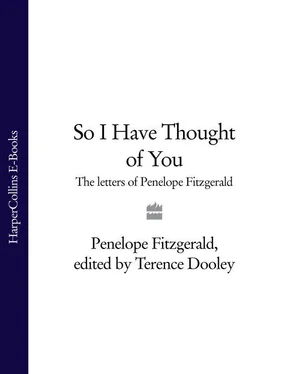
![Ally Carter - [Gallagher Girls 01] I'd Tell You I Love You But Then I'd Have to Kill You](/books/262179/ally-carter-gallagher-girls-01-i-d-tell-you-i-lo-thumb.webp)
